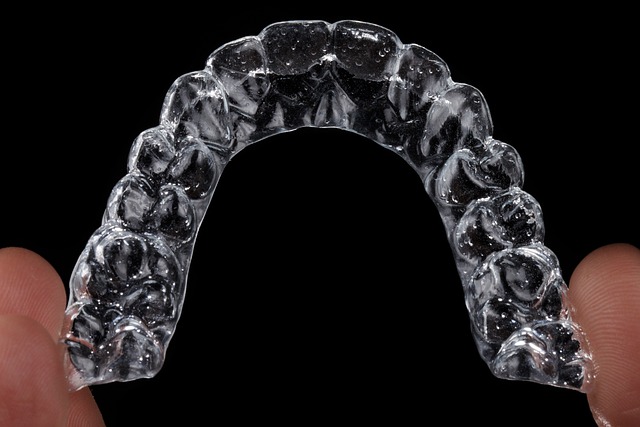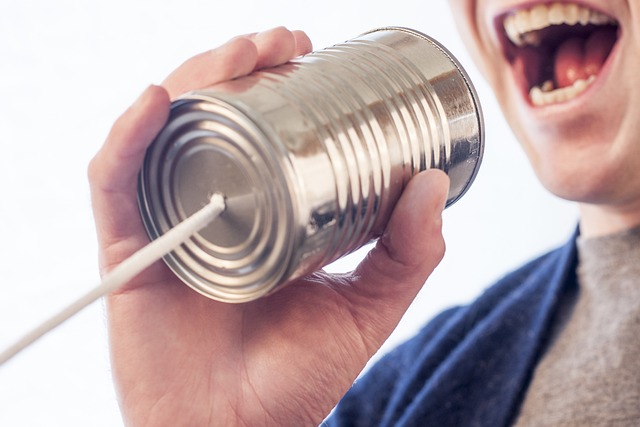Bye-bye Dry Mouth: Unraveling the Mystery of Invisalign’s Temporary Side Effect!
Hello there! Have you ever experienced dry mouth while wearing Invisalign? Don’t worry, you’re not alone! In this article, we are going to unravel the mystery behind this common temporary side effect of Invisalign treatment. We understand that dry mouth can be annoying, but fear not, there are ways to alleviate it. So, let’s dive right in and discover why dry mouth occurs, how it relates to Invisalign, and most importantly, how you can bid farewell to this inconvenient sensation. Get ready to say bye-bye to dry mouth and say hello to a comfortable and confident Invisalign journey!
1. Understanding Invisalign: A Revolution in Teeth Straightening
Invisalign is a groundbreaking teeth straightening treatment that has completely transformed the way we approach orthodontic care. Unlike traditional braces, Invisalign uses a series of clear, custom-made aligners to gradually and discreetly move your teeth into their desired position. These aligners are virtually invisible, making Invisalign a popular choice for individuals who want to straighten their teeth without the noticeable metal brackets and wires.
One of the key advantages of Invisalign is its flexibility and convenience. The aligners can be easily removed for eating, drinking, brushing, and flossing, allowing you to maintain good oral hygiene throughout the treatment process. In addition, Invisalign aligners are smooth and comfortable, minimizing any irritation that can occur with traditional braces. With Invisalign, you won’t have to worry about uncomfortable adjustments or tightening either – simply switch to the next set of aligners every few weeks as directed by your orthodontist.
- No dietary restrictions: Unlike braces, you can still enjoy all your favorite foods without worrying about damaging brackets or wires.
- Greater confidence: Invisalign allows you to straighten your teeth without the self-consciousness associated with metal braces, as they are virtually invisible.
- Shorter treatment time: While the duration varies for each individual, Invisalign treatment typically takes about 12 to 18 months – a shorter time frame compared to traditional braces.
Thanks to Invisalign, achieving a beautiful smile has never been easier and more comfortable. Discuss this modern teeth straightening method with your orthodontist to determine if Invisalign is the right choice for you.

2. The Hidden Side Effect of Invisalign: Dry Mouth
Invisalign is a popular option for achieving a straighter smile without the hassle of traditional braces. While this clear aligner system offers many benefits, there is one potential side effect that often goes unnoticed – dry mouth. It’s important to be aware of this hidden side effect and take steps to prevent or manage it during your Invisalign treatment.
Dry mouth occurs when you have a reduced flow of saliva in your mouth, leading to a dry, uncomfortable feeling. Here are a few things to keep in mind:
- Why does Invisalign cause dry mouth? Wearing aligners for several hours a day can impede the natural flow of saliva in your mouth, resulting in dryness. Saliva plays a crucial role in maintaining oral health by neutralizing acids, washing away debris, and preventing tooth decay. When you have less saliva, these essential functions are compromised.
- What are the symptoms? Dry mouth can cause a range of symptoms, including constant thirst, sticky saliva, bad breath, difficulty swallowing or speaking, a dry or sore throat, and an increased risk of dental issues.
- How can you prevent or manage dry mouth? Fortunately, there are steps you can take to alleviate dry mouth while undergoing Invisalign treatment:
- Stay hydrated by drinking plenty of water throughout the day.
- Avoid consuming excessive amounts of caffeine or alcohol, as they can contribute to dehydration.
- Try using over-the-counter saliva substitutes or mouth moisturizers to provide relief.
- Chew sugar-free gum or suck on sugar-free candies to stimulate saliva production.
- Practice good oral hygiene and keep your aligners clean to minimize bacterial growth.
By being aware of the potential side effect of dry mouth during Invisalign treatment and following these suggestions, you can ensure that your journey to a straighter smile is as comfortable and healthy as possible.

3. What Causes Dry Mouth with Invisalign? Unveiling the Mystery
Dry mouth is a common concern among Invisalign wearers, but rest assured, it’s completely normal and easily manageable. Here are a few factors that might contribute to dry mouth while wearing Invisalign:
- Reduced saliva production: Wearing Invisalign aligners can temporarily decrease saliva flow, as the aligners cover your teeth and create a seal. Saliva helps to naturally cleanse and moisten your mouth, so its reduction can lead to a dry sensation.
- Breathing through your mouth: Some people tend to breathe more through their mouths when wearing Invisalign, especially if they experience nose congestion or find it more comfortable. This can result in dryness due to increased airflow directly over the surfaces of your teeth.
- Drinking less water: With your aligners in place, you may be less inclined to drink water frequently as it can disrupt your everyday routine. Remember to stay hydrated by sipping water throughout the day. It helps to keep your mouth moist and supports overall oral health.
While dry mouth can be a temporary inconvenience, you can manage it easily with these simple tips:
- Maintain good oral hygiene: Brush your teeth regularly with a soft-bristle toothbrush and fluoride toothpaste. Don’t forget to clean your aligners as well to prevent the buildup of bacteria.
- Stay hydrated: Sip on water frequently throughout the day, aiming for at least eight glasses. Consider keeping a water bottle nearby as a reminder.
- Chew sugar-free gum: Chewing sugar-free gum helps stimulate saliva production and can provide temporary relief from dry mouth. Plus, it’s a great way to keep your aligners clean in a pinch.
- Use a moisturizing mouthwash: Look for alcohol-free mouthwashes that are specifically formulated for dry mouth. They can help combat dryness and freshen your breath simultaneously.

4. Why Does Invisalign Affect Saliva Production?
When wearing Invisalign aligners, you may notice an increase in saliva production. This is a completely normal and temporary side effect of the treatment. Here are a few reasons why Invisalign can affect saliva production:
- Mouth movement: Invisalign aligners apply gentle pressure to your teeth, causing them to shift gradually. This movement stimulates the salivary glands, leading to increased saliva production. It’s similar to how eating or chewing gum can also make your mouth produce more saliva.
- <b.Aligner material: Invisalign aligners are made from a medical-grade plastic material that is smooth and comfortable. However, this material can sometimes cause a temporary increase in saliva production as your mouth adjusts to the new aligners.
- Oral hygiene: Maintaining proper oral hygiene is essential when wearing Invisalign aligners. Regular brushing, flossing, and rinsing can stimulate saliva production. Additionally, the aligners themselves can trap small food particles, saliva, or bacteria, leading to an increase in saliva production while your mouth works to keep itself clean.
Remember, the increased saliva production is typically a short-term effect and should subside as your mouth becomes accustomed to the aligners. If you have any concerns or experience persistent discomfort, consult your orthodontist or dentist for further guidance on managing saliva production during your Invisalign treatment.

5. The Science Behind Dry Mouth
Dry mouth, also known as xerostomia, is a condition that occurs when the salivary glands in the mouth do not produce enough saliva to keep the mouth moist. This can lead to discomfort and difficulties in speaking, chewing, and swallowing. Understanding can help us find effective ways to manage this condition.
Saliva plays a crucial role in maintaining oral health. It helps to neutralize acids in the mouth, prevent tooth decay, and rinse away food particles that can lead to bad breath. The dry mouth occurs when the salivary glands are not working properly, resulting in a decreased saliva flow. There are various factors that can contribute to dry mouth, such as certain medications, medical conditions, aging, and lifestyle habits.
To alleviate the symptoms of dry mouth, there are several scientifically proven strategies that can help. It’s important to drink plenty of water throughout the day to stay hydrated. Chewing sugar-free gum or sucking on sugar-free candies can stimulate saliva production. Avoiding alcohol, caffeine, and tobacco can also help, as these substances can worsen dry mouth symptoms. Additionally, using a humidifier in your bedroom or breathing through your nose can help moisten the mouth and reduce dryness. Don’t forget to visit your dentist regularly for check-ups and to discuss any concerns you have about dry mouth.
6. Say Goodbye to Discomfort: Alleviating Dry Mouth with Invisalign
Invisalign is not only a fantastic solution for straightening your teeth, but it also offers relief to those experiencing dry mouth. If you have been living with the discomfort of dry mouth, you’ll be pleased to know that Invisalign aligners can help alleviate this pesky problem.
Dry mouth, also known as xerostomia, occurs when there is a decrease in saliva production. With Invisalign aligners, you can say goodbye to dry mouth as they work to stimulate saliva production naturally. Here’s how Invisalign helps in alleviating the discomfort:
- Invisalign aligners are removable, allowing you to easily clean your teeth and gums, promoting optimal oral health and saliva production.
- Unlike traditional braces, Invisalign aligners don’t trap food particles and bacteria, reducing the risk of dental decay and infection that can contribute to dry mouth.
- By correctly aligning your teeth, Invisalign helps improve the natural flow of saliva, providing relief from dry mouth symptoms.
Relieving dry mouth with Invisalign offers not only enhanced comfort but also improves your overall oral health. Don’t let dry mouth hold you back – start your Invisalign journey today and experience the joy of a well-hydrated mouth alongside a beautiful smile!
7. Tips and Tricks to Manage Dry Mouth During Invisalign Treatment
If you’re undergoing Invisalign treatment, you might experience dry mouth from time to time. Don’t worry, though – we’ve got some tips and tricks to help you manage it! Dry mouth can occur because the aligners cover your teeth and minimize saliva production, leading to discomfort and potential dental problems. But with a few simple adjustments and habits, you can keep your mouth feeling fresh and healthy throughout your Invisalign journey.
1. Stay Hydrated: Drinking plenty of water is crucial to combat dry mouth during Invisalign treatment. Aim for at least 8 cups of water per day to keep your mouth moist and your aligners clean. You can also try sugar-free beverages and rinse your mouth with water after having meals to flush out any lingering food debris.
2. Choose Saliva-Boosting Foods: Including foods that stimulate saliva production can help alleviate dry mouth discomfort. Opt for crunchy fruits and vegetables like apples, carrots, and celery, as well as sugar-free candies or gum. Chewing sugar-free gum can be particularly beneficial as it not only encourages saliva production but also helps to keep your aligners fresh in between cleaning and brushing.
8. Hydration is Key: Staying Moisturized with Invisalign
Staying hydrated is essential for maintaining a healthy body, and it’s no different when you’re wearing Invisalign aligners. Proper hydration not only benefits your overall health but also helps ensure the success of your orthodontic treatment. Here are a few tips to keep yourself moisturized and make the most out of your Invisalign journey:
1. Drink plenty of water: Water is the ultimate thirst quencher and essential for maintaining moisture in your mouth. Aim to drink at least eight glasses of water per day to stay adequately hydrated. Not only will it promote saliva production and keep your mouth moist, but it will also help prevent bad breath and cavities.
2. Avoid sugary and acidic drinks: While it may be tempting to grab a can of soda or an energy drink, it’s important to stay away from these beverages during Invisalign treatment. Not only do they increase the risk of cavities and tooth decay, but they can also stain your aligners, making them less discreet. Stick to water, herbal tea, and sugar-free drinks for a healthier smile.
9. The Role of Oral Hygiene in Combating Dry Mouth with Invisalign
One common side effect of wearing Invisalign aligners is dry mouth. Dry mouth occurs when there is not enough saliva to keep your mouth moist. Saliva plays a vital role in maintaining oral health as it helps to wash away food particles, neutralize acids, and prevent tooth decay. If you’re experiencing dry mouth with Invisalign, here are a few tips to combat this issue and keep your oral hygiene in check:
- Stay hydrated: Drink plenty of water throughout the day to keep your mouth moisturized. It is recommended to consume at least eight glasses of water daily.
- Avoid caffeine and alcohol: Both caffeine and alcohol can contribute to dehydration and worsen dry mouth symptoms. Limit your consumption of these beverages or opt for alternatives like herbal tea.
- Chew sugar-free gum: Chewing sugar-free gum stimulates saliva production and can help alleviate the discomfort of dry mouth. Look for gum that contains xylitol, a natural sweetener that also helps prevent tooth decay.
Remember, maintaining good oral hygiene is essential when undergoing Invisalign treatment. Dry mouth can increase the risk of dental issues, so it’s important to follow these tips for combating dry mouth and keep your teeth and gums healthy throughout your Invisalign journey.
10. Embracing the Benefits: Unveiling the Smiling Journey with Invisalign
Are you looking for a revolutionary and discreet way to achieve a stunning smile? Look no further than Invisalign! This innovative teeth straightening solution has taken the world by storm, providing countless individuals with a discreet and comfortable treatment option. Say goodbye to bulky metal braces and hello to the benefits of Invisalign.
Wondering why Invisalign is the preferred choice for so many? Let’s uncover some of the remarkable advantages. Firstly, Invisalign aligners are virtually invisible, allowing you to straighten your teeth without anyone even noticing. Whether you’re a teenager concerned about your appearance or an adult seeking a professional look, Invisalign has got you covered. Secondly, these aligners are removable, meaning you can enjoy all your favorite foods without the worry of damaging brackets or wires. Simply pop out your aligner, savor your meal, and pop it back in. It’s as easy as that! Additionally, cleaning your teeth becomes a breeze too. No need for complicated brushing and flossing techniques – just remove your aligner, practice your regular oral hygiene routine, and pop it back in. With Invisalign, your oral care remains convenient and hassle-free.
Frequently Asked Questions
Q: What is the article “Bye-bye Dry Mouth: Unraveling the Mystery of Invisalign’s Temporary Side Effect!” about?
A: This article aims to explain and provide insights into the temporary side effect of dry mouth that some individuals may experience while using Invisalign, a popular orthodontic treatment option.
Q: What is Invisalign?
A: Invisalign is a modern orthodontic treatment that uses clear aligners to straighten teeth. It is an alternative to traditional metal braces and has gained popularity due to its discreet appearance and convenience.
Q: What is dry mouth?
A: Dry mouth, also known as xerostomia, is a condition where the salivary glands do not produce enough saliva to keep the mouth moist. It can result in discomfort, difficulty in speaking or swallowing, bad breath, and an increased risk of dental problems.
Q: How does Invisalign cause dry mouth?
A: Invisalign aligners are custom-made to fit snugly over your teeth. This close fit may temporarily reduce the flow of saliva, leading to a feeling of dryness in the mouth.
Q: How common is dry mouth with Invisalign?
A: While dry mouth is generally a temporary and uncommon side effect of using Invisalign, individual experiences may vary. It is not experienced by everyone undergoing this treatment.
Q: How long does dry mouth last while using Invisalign?
A: The duration of dry mouth can vary depending on the individual. Typically, this side effect subsides within a few days to a couple of weeks as your mouth adjusts to wearing the aligners.
Q: Can I do anything to alleviate dry mouth during Invisalign treatment?
A: Yes, there are several steps you can take to alleviate dry mouth. These include staying hydrated by drinking plenty of water, chewing sugar-free gum, using saliva substitutes or moisturizing mouth sprays, and maintaining good oral hygiene practices.
Q: Are there any long-term effects of dry mouth while using Invisalign?
A: No, dry mouth caused by Invisalign aligners is only temporary and does not have any long-term effects on your oral health. Once you complete your treatment, the dry mouth symptom should completely resolve.
Q: If I experience severe or persistent dry mouth while using Invisalign, should I be concerned?
A: While dry mouth is usually a temporary and minor side effect, if you experience severe or persistent dry mouth that doesn’t improve over time, it’s advisable to contact your dentist or orthodontist. They can provide further guidance and evaluate any underlying causes or potential solutions.
Q: Can I switch to a different orthodontic treatment if I’m concerned about dry mouth with Invisalign?
A: If dry mouth is a significant concern for you, it’s best to discuss your options with your dentist or orthodontist. They can offer alternative orthodontic treatments that may not cause this side effect or suggest additional measures to manage your dry mouth effectively.
Conclusion
In conclusion, we hope that this article has shed light on the temporary side effect of dry mouth when using Invisalign. While it may seem like a mystery at first, understanding the reasons behind it can help alleviate any concerns or discomfort you may experience during your treatment.
By wearing Invisalign aligners, you are taking a proactive step towards achieving a straighter and healthier smile. It’s important to remember that dry mouth is just a temporary inconvenience that can easily be managed with a few practical tips and tricks.
Maintaining proper oral hygiene, drinking plenty of water, and using saliva-inducing products can all contribute to reducing the symptoms of dry mouth. Remember to consult with your dentist or orthodontist if the problem persists or becomes bothersome.
As you embark on your journey to a more confident smile, rest assured that the benefits of Invisalign far outweigh any temporary side effects. The convenience, comfort, and effectiveness of this orthodontic treatment are unprecedented, and countless individuals have already achieved incredible results.
So, say goodbye to dry mouth concerns and hello to a future filled with a beautiful, healthy smile. With Invisalign by your side, you’ll be well on your way to enjoying all the benefits of straighter teeth while comfortably navigating this temporary side effect.
We hope this informative article has provided valuable insights into the mystery of Invisalign’s temporary side effect. Remember, your orthodontic journey is unique, and any questions or concerns you may have should always be addressed with your dental professional.
Cheers to a bright and confident smile, and farewell to dry mouth!






